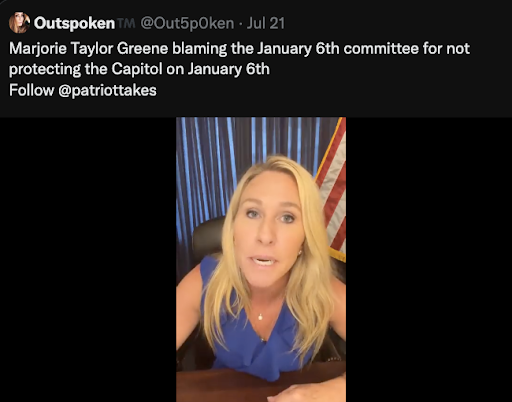
23 July 22
Live on the homepage now!
Reader Supported News
PROUDLY SEEKING YOUR DONATION: Fund-raising is the hardest thing we do. With a budget, this Reader Supported News agency prospers. It's worth it no matter how difficult. Public donations are capable of building a news agency, of the readers, by the readers and for the readers. Nothing makes the corporate news cartel pay attention faster than a Reader Supported challenger. Get us a budget, we know you can do it. Thanks to all.
Marc Ash • Founder, Reader Supported News
Sure, I'll make a donation!

Evan Osnos | If This Isn't a Climate Emergency, What Is?
Evan Osnos, The New Yorker
Osnos writes: "The record-breaking heat wave in Europe this week has produced some haunting scenes: enraged passengers stuck on a train with no air-conditioning; fire consuming homes in the London suburbs; a man escaping a burning town in Spain, his clothes aflame."
President Biden, at a climate event, stopped short of declaring an emergency, casting the day mostly as a reminder of all that has not been done.
The record-breaking heat wave in Europe this week has produced some haunting scenes: enraged passengers stuck on a train with no air-conditioning; fire consuming homes in the London suburbs; a man escaping a burning town in Spain, his clothes aflame. Reuters distributed a selection of clips, with the label “WARNING: GRAPHIC CONTENT.”
A warning label of some kind—“DISPIRITING CONTENT,” perhaps—feels appropriate for several other moments this week, each a political grotesque that captures a facet of the paralyzed climate politics in 2022. On Twitter, a popular home-edited clip starts with a scene from the film “Don’t Look Up”—a dark farce about a meteor plunging to Earth—in which a scientist appearing on a morning television show interrupts the blather and declares, “We’re trying to tell you that the entire planet is about to be destroyed.” The host recoils, then says, “We just keep the bad news light.” The clip next jumps to an actual moment on actual British television. On July 14th, as the heat wave approached, Bev Turner, a host on GB News, a conservative British broadcaster, chided a meteorologist about “enjoying the sunshine” and asked, “It’s not too hot, is it?” The meteorologist, John Hammond, squinting into the camera, flashes an irritated look and shifts to “a serious note, folks”: “I think there will be hundreds, if not thousands of excess deaths,” he said. The host tries to interrupt, but Hammond continues: “It will be brief, but it will be brutal.” Turner eventually drowns him out. “Oh, John, I want us to be happy about the weather,” she says. “I don’t know whether something happened to meteorologists to make you all a little bit fatalistic and harbingers of doom.”
Straining to reflect the urgency of the moment, President Joe Biden, on Wednesday, braved a sweltering afternoon in New England to express alarm, even if his actions were of modest substance. At the site of a former coal power plant in Somerset, Massachusetts, he announced additional money for cooling centers and infrastructure improvements, and actions to expand the offshore-wind-energy industry. “I have a responsibility to act with urgency and resolve when our nation faces clear and present danger,” Biden said. “And that’s what climate change is about. It is literally—not figuratively—a clear and present danger.”
But Biden stopped short of declaring a climate emergency, which many advocates had sought, saying that he needed more time to decide, an absence that cast the day’s events as mostly a visual reminder of all that has not been done. In the span of less than a month, the political prospects in Washington for substantive progress on the climate threat have evaporated. On June 30th, the Supreme Court’s 6–3 ruling in West Virginia v. E.P.A. curtailed the power of the Environmental Protection Agency to regulate carbon emissions, thwarting Biden’s ambitious plans to tackle climate change, and presaging what may be further decisions by the Court that could limit considerations of climate change in pipeline construction and undermine efforts to regulate tailpipe emissions.
Then, last week, Senator Joe Manchin, Democrat of West Virginia, all but killed the Administration’s hopes for legislative progress on domestic issues, by teaming up with all fifty Republicans in the Senate to block a bill that would have included America’s most far-reaching response to climate change. It was an especially galling turn for Democrats who had catered to Manchin for seven torturous months, paring back their ambitions to suit his demands before he abruptly rejected them because he claimed that the bill would contribute to inflation. It was a specious argument; in the final days of negotiation, according to the Times, Manchin was focussed on winning “approval for offshore oil and gas leasing and permitting for a fossil fuel project in his state.”
As usual, Manchin maintains that he is still open to other legislation (on reducing drug prices, for instance), but many Democrats saw his reversal as a clarifying betrayal, an end to a charade of vacuous promises, beginning with his vow to help Biden be “a successful President.” Any hope that Manchin might prefer to be remembered as a dealmaker is fading into the full recognition of what his campaign-finance disclosures report: he has long been one of the Senate’s top recipients of campaign cash from the oil and gas industries; in the most recent quarter, even as he was negotiating climate-change measures, he accepted donations from executives at a long list of energy companies, including Georgia Power, Dominion Energy, Concord Energy, Southern Company Gas, Harvest Midstream, and the Alaska Oil & Gas Association. Not incidentally, his critics note, he is also a personal beneficiary of fossil-fuel-related investments, including from a coal brokerage that last year earned him five hundred and thirty-six thousand dollars—more than triple his hundred-and-seventy-four-thousand-dollar annual Senate salary. Facing criticism for killing the climate bill, Manchin appeared for the cameras and insisted that he had “never” strung Dems along, while declaring to reporters that he has only proletarian motives. “I’m worried about the person that can’t feed their family,” he said on Tuesday. “I’m sorry if they don’t care about that. I do.”
At times, the images have felt like the inevitable makings of a future montage on the collective failure of will, democratic institutions, and leadership. Not long ago, Manchin was the target of intense lobbying by a President who hoped to flatter and cajole him into coöperation. But, by this week, the prospects for persuasion had faded almost entirely, and the signs of crisis made a grim mockery of the political delays in Washington. Temperatures spiked to a hundred and fifteen degrees in places as disparate as Portugal and America’s Great Plains. Nonprofit activist groups, such as the Center for Biological Diversity, have heightened calls on Biden to use more of his executive powers. For instance, if Biden formally defined climate change as a national-security threat, he could expand use of the Defense Production Act to accelerate the spread of electric public buses, high-speed rail, and passenger-vehicle charging stations. If he went further, and declared a climate emergency, advocates say that he would have the legal power to take measures including ending crude-oil exports and halting billions of dollars in U.S. investment in fossil-fuel projects abroad.
At Biden’s Wednesday event, he said, “Let me be clear: Climate change is an emergency. And in the coming weeks I’m going to use the power I have as President to turn these words into formal, official government actions.” (Asked later to clarify whether he intends to declare an official emergency, Biden told reporters that he was still undecided: “I’m running the traps on the totality of the authority I have.”) Advocates were underwhelmed.
Cara Horowitz, the co-director of the Emmett Institute on Climate Change and the Environment, at U.C.L.A. School of Law, told me that the day’s announcements were worthwhile but “small ball.” She explained, “Cooling centers are important. But we can’t get out of this mess by building cooling centers. And I think that’s obvious to everybody, including, I’m sure, to Biden.” Declaring an emergency is not without risk, she pointed out. The current Supreme Court has signalled its suspicion of expanded executive power to address climate goals, so if Biden were to take that action it could end up being reversed in court. “That’s a reason to wonder whether, indeed, this is something useful for Biden to do in this moment,” Horowitz said. “At the end of the day, actions taken under his emergency declaration will be litigated, and the Supreme Court stands at the end of that litigation trail.”
And yet the breadth of obstruction and the mounting evidence of a deadly threat has persuaded some onetime skeptics to favor such a declaration. Horowitz told me she had long been “ambivalent” about emergency powers, but has changed her mind. “I think all of us are asking anew: Are we doing all we can? What more can we do?” she said. “I’m thinking anew about this use of emergency powers, and I really hope Biden is, too.” She added, “There is a utility in being clear about what moment this is. This is an emergency. The head of the U.N. has said this is code red for humanity. If we’re not going to at least try now, it’s not totally clear when one might.”
READ MORE
 Steve Bannon. (photo: Luke MacGregor/Bloomberg)
Steve Bannon. (photo: Luke MacGregor/Bloomberg)
Steve Bannon Convicted of Contempt of Congress for Defying Capitol Attack Subpoena
Hugo Lowell, Guardian UK
Lowell writes: "Steve Bannon, the former top strategist to Donald Trump, was convicted on Friday in his contempt of Congress trial - a victory for the House January 6 select committee that referred him for prosecution as it continues to investigate the former president's role in the Capitol attack."
Jury finds former Trump adviser guilty on two counts of criminal contempt for refusing to appear before House committee
Steve Bannon, the former top strategist to Donald Trump, was convicted on Friday in his contempt of Congress trial - a victory for the House January 6 select committee that referred him for prosecution as it continues to investigate the former president’s role in the Capitol attack.
The jury in federal court took less than three hours to return its verdict and found Bannon guilty on two contempt charges stemming from his refusal to comply last year with a subpoena in the congressional investigation seeking documents and testimony.
Bannon, 68, wearing a dark blazer over two gray collared shirts, showed little emotion as the jury found him guilty. After the trial judge left the courtroom, Bannon talked lightheartedly with his lawyers before walking out into the scorching Washington summer heat.
The jury’s verdict reinforced the message to other potential witnesses and targets in the congressional investigation that blanket defiance of a subpoena could come with far-reaching consequences, including a statutory minimum of 30 days in jail and thousands of dollars in fines.
“Bannon had an obligation to appear before the House select committee to give testimony and provide documents,” said the US attorney for the District of Columbia, Matthew Graves. “His refusal to do so was deliberate and now a jury has found he must pay the consequences.”
But Bannon will appeal the conviction after his sentencing, which is tentatively scheduled for late October. The appeal will aim to capitalize on a pre-trial assessment by the DC district court judge Carl Nichols that the precedent which forced him to exclude Bannon’s main defense arguments was bad law that might be overturned.
The far-right provocateur had largely expected to be convicted, according to people close to Bannon, and has been preparing to play the long game with an appeal, which would see the case outlast the congressional investigation, which has a mandate expiring in January 2023.
In fact, outside court Friday, he told reporters: “We may have lost a battle here today but we haven’t lost the war.
Bannon’s legal team declined to present evidence in defense after Nichols, saying he was bound by the controlling case law Licavoli v United States 1961, excluded their main arguments. The case turned on whether Bannon was in “willful” defiance of the select committee’s subpoena.
The government, according to Licavoli, merely had to prove beyond a reasonable doubt that Bannon’s refusal to comply was deliberate and intentional, and the assistant US attorney Amanda Vaughn told the jury in closing arguments that they should find the case straightforward.
“The defense wants to make this hard, difficult and confusing,” Vaughn said in federal court in Washington DC. “This is not difficult. This is not hard. There were only two witnesses because it’s as simple as it seems.”
In closing arguments for the defense, Bannon’s attorney Evan Corcoran suggested the select committee’s subpoena was illegitimate since the signature of the panel’s chair, Bennie Thompson, appeared suspect. He also argued that the subpoena deadlines were “placeholders” that could be negotiated.
Bannon “didn’t intentionally refuse to comply with a subpoena”, Corcoran said. “He didn’t intentionally refuse to comply with anything.”
The trial strategy for Bannon indeed appeared mostly geared towards an appeal. Nichols ruled before the trial that Bannon could not argue his non-compliance came on the advice of counsel, or that he believed he had absolute immunity from the investigation because of executive privilege.
That meant the only arguments left available to Bannon were either that he was somehow confused about the deadlines indicated on the subpoena, or that he did not realize the deadlines were concrete and thought that he was not in defiance of the order.
Bannon had also wanted to make the argument that he was now engaging with the subpoena after Donald Trump furnished him with a letter claiming he was waiving executive privilege – though that entire premise has been suspect given the subpoena also asked for non-privileged materials.
That line of argument also never seemed particularly persuasive after it was revealed that despite seemingly offering to cooperate with the select committee, and receiving a new letter from the panel seeking documents, Bannon is understood to have turned over nothing.
Bannon’s trial lasted five days. It started on Monday with jury selection, when several potential jurors were excluded because of familiarity with the case or the January 6 investigations. The prosecution witnesses were chief counsel for the congressional panel, Kristin Amerling, and the FBI agent Stephen Hart.
Unrepentant, the onetime Trump strategist was expected to return to hosting his streaming show, War Room, after the verdict.
Bannon is one of two former Trump White House aides to face contempt of Congress charges for not complying with the select committee’s subpoenas, alongside Peter Navarro. The former Trump chief of staff Mark Meadows and his deputy, Dan Scavino, were referred for prosecution but not charged.
Unlike Bannon and Navarro, Meadows and Scavino engaged in months of negotiations with the panel about the scope of testimony and executive privilege concerns. Meadows also turned over thousands of text messages before he ultimately withdrew from talks about appearing for a deposition.
READ MORE
 U.S. Supreme Court Associate Justice Elena Kagan. (photo: Mark Wilson/Getty Images)
U.S. Supreme Court Associate Justice Elena Kagan. (photo: Mark Wilson/Getty Images)
Justice Kagan Gives Pointed Warning About the 'Legitimacy' of the Court
Azmi Haroun, Business Insider
Excerpt: "US Supreme Court Justice Elena Kagan ruminated on the legitimacy of the Supreme Court at a conference full of lawyers and judges, warning that a disconnected court and political appointments could be 'a dangerous thing for the democratic system.'"
US Supreme Court Justice Elena Kagan ruminated on the legitimacy of the Supreme Court at a conference full of lawyers and judges, warning that a disconnected court and political appointments could be "a dangerous thing for the democratic system."
Kagan said that SCOTUS justices had their work cut out for them in terms of earning and maintaining "legitimacy" in the eyes of Americans, according to a report from The Washington Post.
"By design, the court does things sometimes that the majority of the country doesn't like," Kagan said. "Overall, the way the court retains its legitimacy and fosters public confidence is by acting like a court, is by doing the kind of things that do not seem to people political or partisan, by not behaving as though we are just people with individual political or policy or social preferences."
In June, Supreme Court justices voted 5-4 to overturn Roe v. Wade, in a majority opinion supported by conservative Justices Samuel Alito, Clarence Thomas, Neil Gorsuch, Brett Kavanaugh, and Amy Coney Barrett.
The core of the challenge to abortion rights that had been codified for 50 years was a Mississippi law that aimed to ban abortion after 15 weeks – which is stricter than the 24-week standard set by Roe v. Wade.
At least 61% of people support abortion access in the US, according to a Pew Research poll.
Within two weeks, the court also expanded gun rights and imposed limits on the Environmental Protection Agency's ability to implement greenhouse gas regulations.
She added that the court generally being on the opposite side of public opinion could have grave consequences for democracy.
"I'm not talking about any particular decision or any particular series of decisions. But if, over time, the court loses all connection with the public and the public sentiment, that's a dangerous thing for democracy," Kagan told the conference.
In the days before the Roe V. Wade decision, a Gallup poll showed that confidence in the Supreme Court had tanked — with only 25% of Americans saying that they had faith in the institution.
"We have a court that does important things, and if that connection is lost, that's a dangerous thing for the democratic system as a whole," Kagan reiterated.
READ MORE
 ICE agents arrest a man. (photo: Mshale)
ICE agents arrest a man. (photo: Mshale)
'They Don't Have Any Humanity': Black Immigrants in ICE Custody Report Abuse and Neglect
Rita Omokha, Guardian UK
Omokha writes: "In August 2001, Bel'Or, a native of Congo, arrived at Philadelphia international airport with one suitcase, a visiting visa, and a dream to study at an American university."
Complaints from detainees and advocates reveal a disturbing pattern of physical abuse and ignoring medical needs
In August 2001, Bel’Or, a native of Congo, arrived at Philadelphia international airport with one suitcase, a visiting visa, and a dream to study at an American university. In the two decades that followed, he learned English and received a bachelor’s in finance from Temple University on a student visa. Then one night in 2018, as he returned from spending time with friends to mark the first anniversary of his wife’s death, he was arrested by police for a DUI. On 27 January 2020, Bel’Or (identified here by his first name only, for his protection) was placed in Immigration and Customs Enforcement (Ice) custody on non-deportable charges.
Once detained, Bel’Or, who had long enjoyed his freedom as one of the 4.6 million Black immigrants in America, joined a new group: the more than 4,500 Black immigrants inside Ice facilities. Ice’s database lists about 25,000 detainees nationwide, but does not maintain reliable inmate demographics. Non-profits such as Freedom for Immigrants (FFI) and Black Alliance for Just Immigration estimate that roughly 20% of Black immigrants are waiting for deportation.
Advocacy organizations like FFI also say that this demographic experiences higher rates of deportation; sexual, physical, medical, and psychological abuses in detention; and solitary confinement.
After 16 months in custody in York county jail in South Carolina, in July 2021, Bel’Or was transferred to Ice detention at Glades county detention in Moore Haven, Florida, where he first learned about filing abuse-related complaints with FFI through its detention hotline. FFI fields close to 600 calls a week, and the team said the bulk of calls received – one in three – are detainees from Black-majority countries.
In the last month alone, FFI has received more than 2,100 complaints nationwide. The most common abuse-related ones are anti-Black discriminatory actions, ranging from forced strip-searches and unprovoked pepper-spraying to prolonged solitary confinement and critical medical treatment negligence.
“There are so many inequities inside of the system,” FFI’s national hotline manager, Amanda Diaz, said. “It’s because the immigration system is rooted in xenophobia and racism that these everyday injustices have become a norm and have been swept under as day-to-day procedure. It’s also connected to a larger view that the United States, and I think the average American, have on Black immigrants as disposable beings, and people who are less than human.”
During his detention at Glades, Bel’Or called FFI many times. He complained about medical neglect for his pre-existing conditions of hepatitis C, hyperlipidemia, hypertension and diabetes. FFI filed claims with the Department of Homeland Security on his behalf. One complaint includes multiple allegations dating back to Bel’Or’s first detention in 2020. The complaint noted that instead of giving him the designated diabetes food tray, as required by Ice’s policy, the Armor Correctional Health Services – Glades county’s medical subcontractor – increased his insulin dosage. Medical professionals who co-signed the complaint said this could lead to diabetic ketoacidosis – a potentially fatal condition. The letter also noted that long-term uncontrolled diabetes placed him at a higher risk of suffering from severe illness or death.
This level of involvement with Ice detainees is increasingly common for FFI. The group said such cases can be challenging because most of the immigrants they work with are not always candidates for deportation or on a path to citizenship, with some detainees’ records indicating they are neither a danger to society nor a flight risk. This also means those with pending cases for citizenship or other legal status appeals are left in limbo, making it harder, if not impossible, to petition their case.
This is precisely what happened with Bel’Or. Before his wife, a US citizen, died from a brain aneurysm, she applied for his permanent residency with the United States Citizenship and Immigration Services, when Bel’Or worked as a personal assistant for the Democratic Republic of Congo embassy in DC on a diplomatic visa. However, since his 2018 arrest, the green card application process was stalemated and later denied. His lawyer has requested to reopen the case.
“I’ve been in this country for over 21 years,” Bel’Or said, “and I always made sure I was never out of status.”
Bel’Or’s struggles navigating the immigration system since his detention have become emblematic of the wrongdoings at Ice facilities across America.
A pattern of medical neglect
When Ice stopped using Glades in March, after mounting civil rights abuses, inhumane treatments, and federal law violations involving regularly deleting its facilities’ surveillance footage, Bel’Or was transferred again, this time to Krome Service Processing Center in Miami, Florida. Krome and Glades are two of 39 detention centers across the country the American Civil Liberties Union advocated to shut down, writing a letter to the Biden administration outlining growing human rights violations.
At Krome, Bel’Or, age 41, has experienced the same “compromised access to counsel and external medical care” and “egregious … inhumane treatment or conditions” the letter to DHS secretary Alejandro Mayorkas outlined.
Bel’Or said his most recent complaints relate to persistent pain from a tooth infection that has gone unresolved since he first entered Ice custody in 2020. “It’s frustrating,” Bel’Or said last month from Krome. “They have no compassion for you.”
Florida’s ACLU deputy legal director, Katie Blankenship, said such cases happen regularly. “People are walking into Ice detention with open wounds or tumors on their bodies, abscess, teeth that are infected, and they will go months without treatment,” she said. “That is the system that they have to begin with – you’re already set up to fail.”
This negligence is a direct violation of Ice’s own National Detention Standards, which outline, in part, that all facilities must provide detainees with “medical, dental and mental health care.”
Bel’Or also noticed another trend: officers riling detainees into a fight that would land them in solitary confinement – a retaliation technique that has been well documented. A 2020 Punishment and Society Journal study found that Black immigrants are six times more likely to spend time in isolation.
“The guards are very aggressive – physically aggressive – and some of them are verbally aggressive,” Bel’Or said. “They try to put me in a situation where it’s like they’re provoking you. It’s like they enjoy it.”
‘Dismissive and bullying behavior’
Guards have increasingly targeted Black immigrants in Ice custody since 1996 when Bill Clinton’s administration mandated the detention of “illegal aliens” – undocumented immigrants – with the passing of the Anti-terrorism and Effective Death Penalty Act.
“Those laws increased the pipeline between the criminal legal system and the immigration system,” said Jesse Franzblau, a senior policy analyst with the National Immigrant Justice Center. People of color, especially African Americans, were already discriminated against more than other demographics with over-policing. Clinton’s bill exacerbated such policing disparities, now targeting Black immigrants for Ice detention and deportation.
A March complaint filed by FFI against Krome to DHS shows that discriminatory conduct has persisted for Black detainees. And recent claims from May and June inside the facility from detainees like Bel’Or indicate it’s deepening.
Last month, a Krome detainee reported seeing an officer brutally beat another man for not “moving out of the way” fast enough. The man now uses a cane. When the man who saw the attack later tried to advocate on the assaulted man’s behalf, he said he was verbally assaulted by a guard and thrown into solitary confinement.
Around the same time, another Krome inmate reported seeing another man being beaten by a guard until he became unconscious. Afterward, the detainee said the guards did little more than cover the man with a blanket.
Yet another person incarcerated at Krome reported that when officers conducted a shakedown of one unit, they slammed a detainee’s face against glass (at Krome, there are windows and glass panes embedded in the walls) and later threw him into solitary confinement because he asked guards to be careful with his legal documents.
Blankenship, the ACLU legal director, said from recent visits to the Miami facility, she concluded that assault reports have worsened after the influx in population from the Glades transfer. From January through June, at its peak, the population increased by close to 100 detainees, reaching 400 of its 511 maximum capacity.
“You hear a lot of racial slurs. You hear a lot of dismissive and bullying behavior targeted specifically when people of color are asking for medical attention or have special dietary needs,” she said. For example, “we work with a lot of Jamaican immigrants [and] they will request the Rastafari diet, and they are ridiculed for that. They’re definitely not provided what they’re requesting.”
Rolling Manning, a Jamaican immigrant transferred from Glades, said he almost died in Ice custody.
First detained in 2020, the 50-year-old suffered monoxide poisoning from a gas leak in the kitchen at Glades in November. “While working [the day of the gas leak], I began feeling sick,” Manning recalled. “My chest was tightening up, and my breath was getting shorter. I was nauseated, weak and my hands and feet began to tremble.” Manning was transported to a nearby hospital, Hendry Regional Medical Center, chained at his waist and feet. “My head was pounding, and I brought up blood every time I coughed,” he said. “I was going in and out of consciousness.”
The next day, still feeling sick, Manning said he was abruptly discharged. During his transport to Krome – a 1.5-hour drive south from the hospital – he begged Ice officers to use the bathroom, but they “refused to stop”, he said. “I could no longer hold on any longer and had to go on myself.” Since his arrival at Krome, he said he has only been given Tylenol as he recovers.
An internal investigation by the Glades county sheriff’s office into the poisoning incident later found several officials responsible, calling the leak a “careless” event that “quickly developed to a full-blown mass casualty”.
A release petition filed by Manning in February to Ice outlines, alongside medical reports, his chronic respiratory problems because of the exposure at Glades and what he describes as persistent medical negligence at Krome. Manning also said he feared deportation because he is bisexual and has previously been assaulted over his sexuality in Jamaica. The petition remains unanswered.
‘They just tryna break you’
Wearied by the continuing abuse, some detainees have banded together and taken matters into their own hands by coordinating mass hunger strikes. When one group in Krome did this recently, protesting cruel treatments, they were handcuffed and placed in isolation for two weeks, according to complaints submitted to FFI.
Luis was one of those who participated in a peaceful hunger strike at Krome. Before turning to that extreme measure, he said he had submitted numerous complaints against guards and staff for denying him critical medical care for his diagnosis of first-degree atrioventricular block, a life-threatening heart condition. Despite recommendations from outside medical professionals, Luis said he failed to receive treatment. Instead, the migrant from the Dominican Republic said he was placed in isolation each of the four times he went on a hunger strike.
“It’s like being in hell, you’re just looking at the wall,” he said of his time in solitary confinement – in all, 60 days. One time, he recalled the guards punched him when trying to force-feed him. “It’s horrible, they just tryna break you,” he recalled.
After multiple petitions and working with advocacy groups, he was released in April. His lawyer, Stephanie Norton, said it took a concerted effort from his family, community members, and Luis’s persistent advocacy. “I was so impressed at his strength and ability to stand up for himself,” Norton said, “and to never give up, even though that’s all that Ice wanted him to do.” Luis and his lawyer are still fighting his deportation charge and to regain his permanent resident status. He said he still fears further retaliation from Ice.
Asked about such complaints, a spokesperson for Ice said the agency is “committed to ensuring that all those [in] custody reside in safe, secure, and humane environments under appropriate conditions of confinement.”
The Ice spokesperson didn’t outline the agency’s investigation or escalation process for reported claims, only saying the agency takes all “allegations of misconduct very seriously – personnel are held to the highest standards of professional and ethical behavior, and when a complaint is received, it is investigated thoroughly to determine veracity and ensure comprehensive standards, which Ice is required to follow, are strictly maintained, and enforced.”
Blankenship said that in her experience when complaints are filed with Ice or DHS by detainees or on their behalf, especially Black detainees, they remain largely ignored. “The review process is very slow,” she said. “We rarely, if ever, receive results of their investigations.”
Though Florida’s ACLU detention database lists Krome as having the highest reported violations in the state, disturbing human rights charges targeting Black immigrants are not limited to those detention facilities.
Before his deportation last month from Texas’ Prairieland Detention – another detention center the ACLU called out for closure – a Liberian detainee named Romeo Konneh had filed numerous complaints of medical neglect at the many Ice facilities across the nation where he was held, including Batavia, New York, and Bergen county, New Jersey. In one complaint sent to DHS on his behalf by three advocacy groups, he said he wasn’t being treated for his pre-existing conditions, HPV and diabetes. “Whenever I go and see the doctor, the doctor refuses to treat me,” he said. “The doctor once told me that ‘if you don’t like the way that I’m talking to you, go back to your country.’”
In December, 16 civil rights organizations, including Freedom for Immigrants and Black Alliance for Just Immigration, sent DHS a letter with evidence of life-endangering harms and anti-Black racism at facilities “under the jurisdiction of the New Orleans Ice Field Office.” One of those facilities, Winn Correctional Center, remains open even after DHS’s Office for Civil Rights and Civil Liberties recommended that it be shut down, concluding it has a “culture and conditions that can lead to abuse, mistreatment, and discrimination,” including findings of mold, pests, and poor medical care. (The Ice spokesperson did not comment directly about the Winnfield, Louisiana, facility.)
Patrice Lawrence, executive director of UndocuBlack – which advocates for Black and undocumented people, many of whom have either been in Ice custody, or have family members who have been in detention – said human and civil rights allegations continue to go unresolved, even when sites are found to be in violation, because “there’s no accountability” within Ice and DHS.
“Nobody believes us when we say they don’t treat us like humans, and they grab us and they abuse us and they hurl slurs at us and they do not treat us with any form of dignity, much less compassion,” she said. “It’s a part of who America is. And it is especially a part of what policing looks like in this country. And Ice is just an extension of the police force with even more power. Because they’re dealing with migrants who have less rights.”
Before his arrest, Bel’Or had planned to enroll in business school, having just passed the GMAT. Now his greatest worry is being deported without much notice, as he’s seen with other detainees, leaving his two American-born children – an 11-year-old daughter and a six-year-old son – without parents.
His most pressing and imminent fear, though, remains his daily life and uncertainties in Ice custody, where it seems the guards don’t see the detainees as humans. “For them, even if you’re here legally, they want to get you out of ‘their country’,” Bel’Or said. “They don’t want to know you as a person. They don’t have any humanity.”
READ MORE
 Rohingya women and girls. (photo: JWW)
Rohingya women and girls. (photo: JWW)
Myanmar Genocide Case to Go Ahead After ICJ Rejects Objections
Al Jazeera
Excerpt: "Judges at the United Nations' highest court have dismissed preliminary objections by Myanmar to a case alleging the Southeast Asian nation is responsible for genocide against the mostly Muslim Rohingya minority."
Judges at the UN’s top court dismiss objections to a case alleging genocide against the Rohingya.
Judges at the United Nations’ highest court have dismissed preliminary objections by Myanmar to a case alleging the Southeast Asian nation is responsible for genocide against the mostly Muslim Rohingya minority.
The decision on Friday clears the way for the highly charged case, brought by The Gambia, to go ahead at the International Court of Justice (ICJ), a process that could take years.
Myanmar, now ruled by the military, had argued that The Gambia, which brought the suit, had no standing to do so at the ICJ.
But presiding Judge Joan Donoghue said the court found that all members of the 1948 Genocide Convention can and are obliged to act to prevent genocide, and it has jurisdiction in the case.
“Gambia, as a state party to the Genocide convention, has standing,” she said, reading a summary of the ruling. The court will now proceed to hearing the merits of the case.
The Burmese Rohingya Organisation UK (BROUK) welcomed the court’s decision.
“This decision is a great moment for justice for Rohingya and for all people of Burma. This ruling shows that there is a possibility to challenge to the military’s impunity,” Tun Khin, BROUK president, said in a statement. “The objections raised by Burma were nothing but a blatant delaying tactic, and we are pleased that this landmark genocide trial can now finally begin in earnest.”
While the court’s decisions are binding and countries generally follow them, it has no way of enforcing them.
In a provisional decision two years ago, the court ordered Myanmar to protect the Rohingya from genocide, a legal victory that established their right under international law as a protected minority.
The South East Asian nation was then represented by elected leader and Nobel laureate Aung San Suu Kyi, who was removed by the military in a coup in February 2021.
‘Speed up justice’
A small group of pro-Rohingya protesters gathered outside the court’s headquarters, the Peace Palace, before the decision with a banner reading: “Speed up delivering justice to Rohingya. The genocide survivors can’t wait for generations.”
One protester stamped on a large photograph of Myanmar’s military chief and coup leader, Senior General Min Aung Hlaing.
“Since it seized power in a coup last February, the military junta’s violence and criminality has only deepened,” Akila Radhakrishnan, president of the Global Justice Center, said in a statement.
“Though we’ve seen strong condemnation and some bare accountability measures from the international community, the people of Myanmar continue to suffer under this brutal regime. And though this case is just one of many roads toward justice, its resolution would be a major step towards justice and a sustainable, democratic Myanmar.”
Canada and the Netherlands have given their support to The Gambia’s case at the ICJ and rights groups say more countries should follow their lead.
“Jurisdiction in this case is settled,” Fortify Rights Chief Executive Officer Matthew Smith said in a statement. “The international community should immediately get behind The Gambia in this case and support other efforts across mechanisms to hold the Myanmar military to account for its horrific crimes against the people of Myanmar.”
Myanmar’s military launched what it called a clearance campaign in Rakhine state in 2017 in the aftermath of an attack by a Rohingya armed group. More than 700,000 Rohingya fled into neighbouring Bangladesh and Myanmar security forces have been accused of mass rapes, killings and torching thousands of Rohingya homes.
Some Rohingya remained in Rakhine despite the crackdown.
More than 100,000 live in ‘displacement’ camps that Human Rights Watch has described as “squalid and abusive” with “severe limitations” on their movement, education and healthcare. Amnesty has described the situation of the Rohinyga in Rakhine, who are not allowed to leave the state, as apartheid.
US Secretary of State Antony Blinken declared in March that the Myanmar military’s violence against the Rohingya amounted to genocide.
The ICJ rules on disputes between states and is not linked to the International Criminal Court, also based in The Hague, which holds individuals accountable for atrocities.
Prosecutors at the ICC are investigating alleged crimes committed against the Rohingya.
BROUK has also filed a genocide case in a court in Argentina under the principle of universal jurisdiction, which allows courts to prosecute alleged breaches of international law committed anywhere in the world.
READ MORE
 Xiomara Castro. (photo: Daniele Volpe/NYT)
Xiomara Castro. (photo: Daniele Volpe/NYT)
Socialist President Xiomara Castro Is Trying to Revive Democracy in Honduras
Hilary Goodfriend, Jacobin
Goodfriend writes: "Honduras's new leftist president, Xiomara Castro, was inaugurated in January. In her first few months in office, she's prioritized dismantling the decade-long right-wing dictatorship's anti-labor, pro-capital agenda."
Honduras's new leftist president, Xiomara Castro, was inaugurated in January. In her first few months in office, she's prioritized dismantling the decade-long right-wing dictatorship’s anti-labor, pro-capital agenda.
In January 2022, Xiomara Castro became Honduras’s first woman president, restoring electoral democracy to the country after more than a decade of dictatorship. Running with the leftist Liberty and Refoundation (LIBRE) party, Castro’s election breaks with the century-old two-party system that traded power between elites in the establishment National and Liberal Parties. With a mandate for transformation and high popular expectations, Castro faces significant challenges in a context of profound systemic crisis.
The 2009 military coup that ousted Castro’s husband, democratically elected president Manuel Zelaya of the Liberal Party, plunged Honduras into chaos. The ensuing far-right regime was sustained by military force and brazen electoral fraud. The original “Banana Republic” became a laboratory for radical new modes of appropriation and enclosure, with public services and resource-rich territories auctioned off to the highest bidder. Social movement leaders met escalating repression, including the high-profile execution of renowned indigenous activist Berta Cáceres in 2016. The private interests of public officials, extractive capital, and narcotraffickers became indistinguishable. In the face of mounting displacement, insecurity, and inequality, impoverished Hondurans fled to the United States in unprecedented numbers.
LIBRE was formed in 2011 out of the National Popular Resistance Front, which was forged in the anti-neoliberal struggles of the previous decade and challenged the dictatorship in the streets. Militant peasant, indigenous, and labor movements were essential to LIBRE’s victory, but Zelaya’s liberal faction is the dominant force in the governing coalition. Popular organizations must now navigate the pitfalls of demobilization and co-optation as they seek to hold the new government to its promises while fending off destabilization from the Right.
Castro inherits an indebted, ransacked state apparatus, an export-dependent economy in crisis, and a dangerous oligarchic opposition. The judiciary and security forces remain profoundly corrupt and beholden to the old regime, such that the government preferred to extradite her predecessor Juan Orlando Hernández (JOH) to the United States for drug trafficking rather than try to enact justice domestically. The administration has requested UN support for an international, anti-corruption commission in the style of the body that was expelled from the country under JOH.
Castro’s first acts prioritized dismantling the dictatorship’s designs. Declaring electricity a public good and a human right, a reform to rescue the National Electric Energy Company pledges to renegotiate contracts, reserving the right to confiscate noncompliant plants. Legislators repealed the framework for the loathsome autonomous free-trade enclaves called “Zedes,” as well as an Hourly Employment Law that shredded labor protections. At the same time, the president has bolstered social spending and is rolling out targeted cash transfers to families in extreme poverty. New bodies like the Secretariat for Strategic Planning and its Popular Power dependency hope to formalize movements’ role in public policy.
But implementation remains an open question. The environment secretary announced the cancellation of extractive permits and declared the country free of open-pit mining, but the measure has not been enforced. After Congress passed an amnesty for the dictatorship’s political prisoners, the Supreme Court overturned it. And libertarian investors who colonized part of the Caribbean island of Roatán are challenging the Zedes abolition. Upcoming elections in Congress for Supreme Court magistrates and the attorney general will prove key to enforcing reform, together with sustained pressure from below. In the longer term, however, change will depend on fulfilling the resistance movement’s demand for a National Constituent Assembly.
The Castro government must create capacity for self-determination in a state constructed to serve monopoly capital. Honduras is especially vulnerable to US pressures to maintain the country’s subordinate insertion in regional free trade and security regimes, with extensive US military presence throughout its territory and long-standing economic dependency. For the Left, the dictatorship’s defeat is only the first stage in a long transition process toward the democratic refoundation promised in the LIBRE party’s name.
READ MORE
 The species' numbers have dropped between 22 and 72 percent over the past decade, according to the new assessment. (photo: Justin Sullivan/Getty Images)
The species' numbers have dropped between 22 and 72 percent over the past decade, according to the new assessment. (photo: Justin Sullivan/Getty Images)
Why Monarch Butterflies, Now Endangered, Are on the 'Edge of Collapse'
Dino Grandoni, The Washington Post
Grandoni writes: "The migratory monarch butterfly, a North American icon with a continent-spanning annual journey, now faces the threat of extinction, according to a top wildlife monitoring group."
The International Union for Conservation of Nature placed the migratory insect on its endangered species list Thursday.
The migratory monarch butterfly, a North American icon with a continent-spanning annual journey, now faces the threat of extinction, according to a top wildlife monitoring group.
Thursday’s decision by the International Union for Conservation of Nature to declare the species endangered comes as years of habitat destruction and rising temperatures have decimated the fluttering orange itinerants’ population.
The species’ numbers have dropped between 22 and 72 percent over the past decade, according to the new assessment. Monarchs in the Western United States are in particular danger: The population declined by an estimated 99.9 percent, from as many as 10 million butterflies in the 1980s to fewer than 2,000 in 2021.
“It is difficult to watch monarch butterflies and their extraordinary migration teeter on the edge of collapse, but there are signs of hope,” said Anna Walker, an entomologist at the New Mexico BioPark Society who led the butterfly assessment.
The loss of monarchs underscores a looming extinction crisis worldwide, with profound implications for the humans who have caused it. One million species could disappear, according to the United Nations, a potential calamity not just for plants and animals but also for the people who depend on ecosystems for food and fresh water.
The IUCN is a network of governmental and nonprofit organizations that comprehensively tracks the status of species. Scientists from around the world work together to produce assessments.
Among butterflies, the monarch is not alone. Butterflies across the West are vanishing as the region gets hotter and drier. According to one recent study, a majority of 450 species across a swath of 11 Western states are dropping in numbers.
But it is the decline of the well-known monarch that has grabbed headlines and caused dismay among many wildlife watchers.
The butterfly is famous for its epic migrations from wintering grounds in Mexico and California across the rest of the continent, signaling a change in season as it fans out into the northern reaches of the United States and Canada.
Despite being able to survive thousands of miles of migration, the monarch now faces abundant threats from humans.
Forest-clearing to harvest timber and to make space for farms and homes is creeping into its wintering grounds. Pesticides and herbicides threaten not only the insect itself but also milkweed, which monarch larvae need to live.
Yet it is possible that the monarch — which, like many insects, plays a pivotal role in pollinating both crops and wildflowers — could come back from the brink.
Monarch aficionados are replanting milkweed across its migration path. The population of insects can fluctuate wildly, and if conditions are right, the monarchs’ numbers can rebound. Last year, in fact, was a bumper year for the butterfly.
“People recognize the monarch,” Walker said. “People love the monarch. So that gives us an opportunity to do the outreach and get people on board.”
But climate change, triggered by the burning of fossil fuels and other human activity, is making recovery harder as drought scorches areas along the monarch’s migration routes and as storms strike its overwintering spots.
“Climate change is going to be a larger and larger issue for the species,” Walker said.
The endangerment declaration focused on the migratory monarchs of North America, and did not include more stationary populations in southern Mexico, Central America, northern South America and the Caribbean.
Despite the dangers the butterflies face, wildlife officials in the United States have yet to grant federal protections for the monarch under the Endangered Species Act.
In 2020, the U.S. Fish and Wildlife Service said the butterfly’s decline is sharp enough to warrant placement on the endangered species list. But the agency declined to do so, saying other species should take priority.
The latest update to the IUCN’s Red List of Threatened Species also found that all 26 species of sturgeon, an armor-clad, spindle-shaped fish found from the rivers of Russia to the basins of Alaska, are at risk of extinction.
Sturgeon declines are steeper than once thought, the group found, as dams and warming waters undercut the fish’s reproduction and poaching for its meat and caviar persists. One species, the Yangtze sturgeon in China, can no longer be found in the wild.
But it’s not all bad news: Scientists found that the number of known tigers in the wild has risen, to anywhere between 3,726 and 5,578.
Scientists have gotten better at tallying the number of big cats, while some wildlife officials in Asia have strengthened protections for the top predator. There are signs of recovery in China, India, Nepal and Thailand, according to Dale Miquelle, tiger program coordinator for the Wildlife Conservation Society.
Still, the destruction of jungles and continued poaching of both tigers and their prey, such as deer and boar, remain long-term threats. Tigers may now be gone for good in Cambodia, Laos and Vietnam, Miquelle said.
“There’s evidence that things are getting better,” he said. “But we all recognize that the successes and the progress is very fragile.”
READ MORE
Special Coverage: Ukraine, A Historic Resistance
READ MORE
Contribute to RSN
Follow us on facebook and twitter!
Update My Monthly Donation
PO Box 2043 / Citrus Heights, CA 95611













































